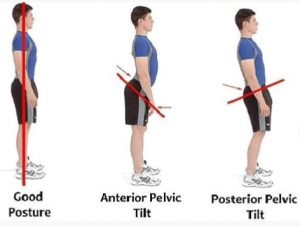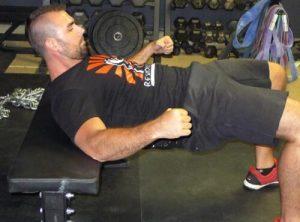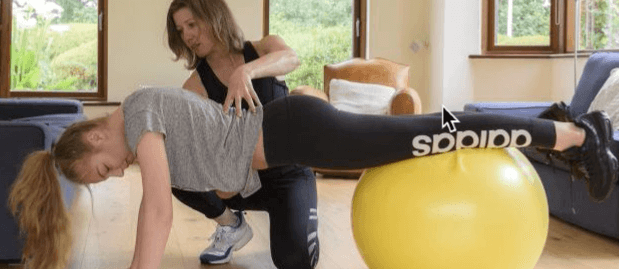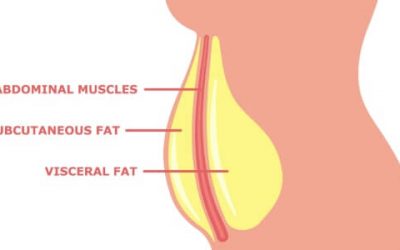My typical working week brings me into contact with a large range of individuals: people rehabbing injuries, recreational trainees looking to get in better all-round shape, competitive athletes…the whole spectrum.

But, perhaps surprisingly, one specific thing connects a lot of these people; a combination of poor pelvic/lumbar posture and poor core stability, that results in one particular, common problem: an inability to keep their spine in the correct position. This seemingly simple issue may be the cause of many people’s lower back pain.

 “Core stability” is easily explained (although as a term, it is often misunderstood). Essentially it is the ability of your torso muscles (everything except your head and limbs) to maintain your ideal position. People think of “The Core” as being just the abdominal muscles at the front of your body, but there is so much more to it; deep overlapping muscles of the front, side and back of the body that all work together to make sure we don’t flop around like a wet fish whenever we move.
“Core stability” is easily explained (although as a term, it is often misunderstood). Essentially it is the ability of your torso muscles (everything except your head and limbs) to maintain your ideal position. People think of “The Core” as being just the abdominal muscles at the front of your body, but there is so much more to it; deep overlapping muscles of the front, side and back of the body that all work together to make sure we don’t flop around like a wet fish whenever we move.
When we talk about lumbar posture and pelvic angle it sounds a little more complicated but it really isn’t. And it’s such a hugely important element of our physical health it’s worth the investment of a couple of minutes’ reading!
“Lumbar” refers to our lower back, specifically the lower part of the spinal column. The specific problem we are talking about is that people tend to have far too great an arch in their lower back (known as lumbar hyperextension) and this tends to happen in tandem with poor position of the pelvis known as Anterior Pelvic Tilt (see below picture).
This is all a fancy-sounding way of saying that our back and pelvis is sitting at a poor angle, and it means that our back often takes a pounding from doing things like planks, push-ups, loaded movements like squats or presses, or even just standing for long periods.
The next time you’re at a commercial gym and you see someone in the push-up position, look at how their lower back is arched and I bet you’ll see exactly what I’m talking about. I see so many people who are unable to just hold the push-up position properly…correct posture should be their number one priority before worrying about how many push-ups they can do!
If you’re worried that this issue affects you (the odds are that it does!) there is a simple way to check. Take a quick picture of yourself from the side, with the top of your trousers (or belt) visible. If your belt (or your pants) sits lower down at the front of your body than the back, it usually means you are in anterior pelvic tilt and lumbar hyperextension (overarching of the back). This will be the middle position in the above illustration.
A number of factors can contribute to this issue (tight hipflexors, weak gluteal muscles, and bad habits) but there are a few things you can do to combat the problem straight away.
Whether standing, lying down, or facing up, identify two points: one on your bellybutton, and another in the centre of your chest. Tuck your chin to your chest and try to actually curl forward a little by rounding your back slightly and get the two points (bellybutton and chest) to move toward one another a little. You may feel a slight stretch in the muscles that go across the front of your hips (see below)

 You may well feel an immediate reduction in tightness in the lower back if this is done correctly. If you are the sort of person who gets very tight or sore from standing up for long periods then practice performing this correction at regular intervals throughout the day. Trust me, it will make a huge difference!
You may well feel an immediate reduction in tightness in the lower back if this is done correctly. If you are the sort of person who gets very tight or sore from standing up for long periods then practice performing this correction at regular intervals throughout the day. Trust me, it will make a huge difference!
Long term it will probably be necessary to find an experienced and qualified coach (and this is a much easier concept to explain in person!) to help identify the different reasons an individual could be experiencing problems with their posture. But for now, try the suggestions above next time you plank, do push-ups, or are just on your feet for the day, and see if they help. Good luck!



